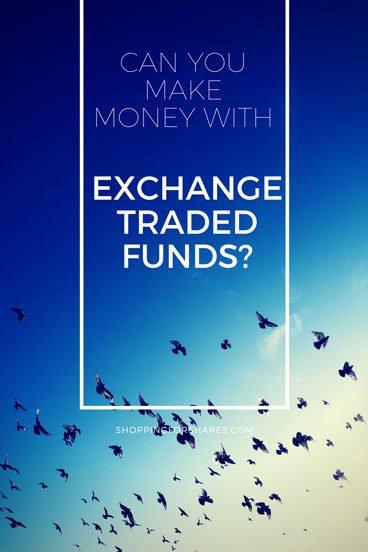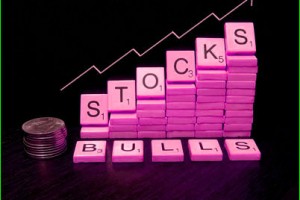In my last post, I talked about how much of a fan I was of Exchange Traded Funds (ETFs).
If you missed that post, in short, the two biggest benefits of investing in ETFs was diversification and access to international stock markets. There were other advantages too, like easy access to the funds via the stock exchange, but it’s the first two that make ETFs a must include investment for me.
However, I still do invest in single stocks as well. The reason being that while ETFs are amazing. Their returns can be, well, average. You won’t get the amazing highs, and conversely, you won’t get the fast falls either because the diversification of them smooths everything out.
What is better: ETFs or Stocks?
Determining whether it’s best to invest in ETFs or stocks really comes down to your goals. Neither is better than the other per se. It really depends on whether you enjoy investing directly in the stock market and doing research to determine what to buy, or whether you’d prefer that done for you.
There are advantages and disadvantages to both methods of investing.
ETFs are nice and stable, but some might say boring, investments.
Don’t get me wrong. I love a boring investment, especially in a volatile market. It’s also why I think ETFs are perfect for beginner investors because they don’t get the wild swings of a more volatile stock. The price will still go up or down depending on the market overall, but it’s a lot smoother. The diversification protects it from any sharp movements.
But it is possible to be over-diversified.
The Thing with Over-Diversification
If you’ve done a search recently on ETFs, you might have seen articles warn you about the dangers of investing in Exchange Traded Funds (which is a total clickbait headline by the way). What they are usually talking about is over-diversification.
Over-diversification is not really a problem per se, and certainly not a danger! (lol). But it does mean that you are always going to get average results.
You don’t have the potential of picking those great companies that double in value every few years and become the stars of your portfolio.
And you probably will be holding dud stocks that are pulling the value down.
Even if those star stocks are included in your ETF, the fund manager will rebalance the portfolio regularly. Part of the rising stocks will get sold, more of the falling stocks will get bought, so it’s always in the right balance for that fund. In essence, it contains both great companies and not-so-great companies too.
Different ETFs will have different results, of course. Some will do better than others, but each fund can never do better than the average of its components. But it can’t do worse either.
Is Average Bad?
When it comes to the stock market, the average isn’t bad at all.
Over the past fifty years, the US stock market has made on average 10% return per year. Here, in Australia, it’s around 7% per year.
Then, Why Should Someone Invest in Exchange Traded Funds?
It’s true that you’ll never do better than average when investing in ETFs. But you’ll never do worse either. It can be stressful to watch the daily fluctuations of a single stock, but that doesn’t happen with Exchange Traded Funds because any volatility is smoothed out.
Should I Invest Exclusively in ETF’s?
There is nothing wrong with investing exclusively in ETF’s. As we’ve mentioned they are easy, diversified, and can get you into international markets (which often have higher returns than just Australian only companies).
Are ETF’s better than Managed (Mutual) Funds?
While I did cover this briefly in my last post, it’s worth mentioning it here as well. ETF’s have advantages over managed funds in that they are more flexible, you don’t need a minimum amount of money to invest and the fees are usually less.
Just the simple fact that they are traded on the stock exchange means they are accessible to anyone with a trading account. It also means that if you want to liquidate your portfolio quickly, for any reason, that you can do so easily by placing a buy order. Compared to managed funds, that’s a whole lot easier to get your money (and faster too).
Investing exclusively in ETF’s – A good portfolio mix
If you were looking for a good portfolio mix of exclusively ETFs here is my pick. Two or three is all you’ll need.
- A simple ETF index fund from your own country e.g. ASX200, S&P500, etc,
- An ETF from another country (Choose either US, Europe or Asia), and
- An emerging markets ETF.
This mix would give you a highly diversified portfolio, but with good potential for return.
But as I’ve mentioned I don’t invest exclusively in ETFs. I also buy individual stocks.
A portfolio mix that includes single stocks as well
By having 20-25% ETFs in your portfolio, you can take advantage of the diversification of exchange-traded funds, but have plenty of room left for buying single stocks as well.
That way you have the potential to do better than average (as long as you choose well and do your research, of course).
There are two different portfolio mixes that I recommend depending on your investment goals. A portfolio for growth that includes sectors that see good returns year to year, and the other for income if you prefer dividend stocks.
Growth Stocks Portfolio
- 10% ETF Index Fund from either US, Europe, or Asia
- 10% ETF Emerging Markets ETF
- 30% Health Care Sector Stocks
- 20% Materials Sector Stocks
- 20% Information Technology Sector Stocks
- 10% Stocks from other Sectors
Income Stocks Portfolio
- 20% ETF High Yield Index Fund
- 30% Financials Sector Stocks
- 20% Consumer Staples Sector Stocks
- 20% Utility Sector Stocks
- 10% Stocks from other Sectors
The above two mixes will offer a good balance of diversification and either growth or income to those respective portfolios.
Look for fund management companies that have a good reputation and have been around for at least ten years so you can evaluate their track record. I quite like the Vanguard mix of ETF’s, but there are plenty of other exceptional fund managers with good ETFs to choose from.
Happy Investing.
Tracey





